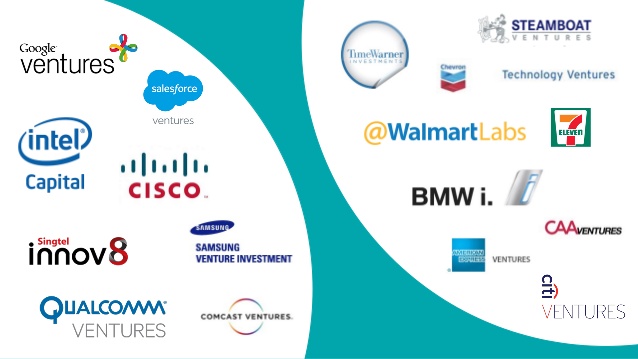These are the Best of Times for venture capital. 500+ new seed funds, and 1000+ unicorns and decacorns. And as part of this, more and more big corporations are adding and expanding their venture arms.
For the most part, this is a great thing. More options are almost always better for founders.
Let me share a quick list of Pros, Cons, and Not Big Deals.
Cons:
- Usually won’t carry the company or write many “second checks”. This is the biggest issue. Traditional VCs usually reserve another 1x-2x of their first check for later investments. Corporate VCs don’t. They also generally don’t want to “carry” a company and write another check if no one else will. VCs don’t like this either, but they’ll often do it.
- Aren’t usually great at bringing in next-round investors. Top seed investors are good at brining in Series A investors. Same with Series A investors and Series B investors. This rarely works with corporate VCs. Some are very good at this though, e.g. Salesforce Ventures.
- Synergies often very limited if just from a check. If a $100b company writes you a $500k check, how much help can you expect? Be realistic. If the synergies are real, they’ll happen irrespective of some token investment. But a check can help solidify a pre-existing relationship (see below).
- Priorities change. It may take you 10-12 years to get to an IPO, longer to go the distance. What are the odds that a corporate venture program will even exist at this point, or in the same form? Low. This may not be a huge deal. But traditional venture firms aren’t going anywhere in most cases. They legally and contractually live 10+ years at a minimum.
- Can help solidify an existing partnership. An investment won’t create a partnership. But it can help solidify one that already exists. An investment may anoint one vendor in the space as the preferred vendor over competitors. This can really help. A BigCo that is already a partner with a startup often does a little more for them when everyone knows they are also an investor.
- Less valuation-sensitive. Let’s be honest, this is a big driver. Many corporate venture funds that aren’t as ROI focused as traditional VC funds. No one wants to pay a bad price, no one is stupid. But corporate VCs often aren’t judged on pure IRR. Some are (e.g., Intel). But those that aren’t will be less sensitive to price.
- Validation. This is minor, but real. Having Salesforce or Google invest in your company does equal validation.
- Flexibility to buy smaller stakes and invest between traditional rounds. A traditional VC fund may only want to buy 10%+ of a start-up, and may only want to invest in a traditional round. But a corporate VC may be fine investing any time, and may be fine with a smaller stake. This can be very helpful.
- The ecosystem. This is usually minor again, but real, especially in the enterprise. Being an insider in the Salesforce ecosystem is materially better than being an outsider. For real. Same with LinkedIn, Workday, etc. Getting “inside circle” access is a benefit.
Not Such a Big Deal:
- Few control issues in most cases these days. Corporate VCs wanting to control start-ups with lots of conditions is a bit of a dated concept. This is rare these days with well-established programs. Just walk if there are a lot of strings. No well-established corporate VC program is going to ask for M&A options or blocking rights. New programs, or direct investments, may however.
- Asks for integrations, etc. Many corporate VCs won’t have a lot of strings anymore, but often ask for integrations to be built in particular. Integrating with one more API is not that big of a deal, and can be outsourced. Most importantly, these conditions, if put into deals, are often soft without firm or short-term deadlines.
If you net this out, corporate VC is usually ideal in smaller chunks, and not leading rounds. Maybe 2%-3% ownership max. Which is what most of them like anyway.
(note: an updated SaaStr Classic post)


